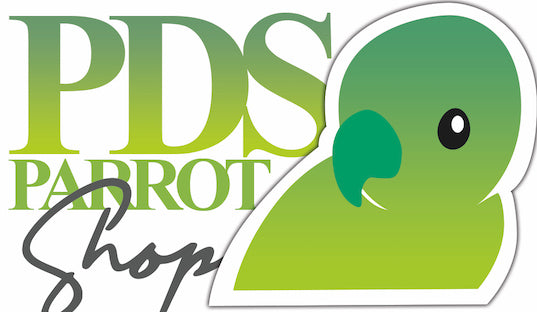
Cockatiel Bird Toys
Cockatiels are intelligent and playful birds that thrive on mental stimulation and physical activity. One of the best ways to enrich your cockatiel's daily life is by providing the right bird toys. In this guide, we’ll explore cockatiel bird toys, explain why they’re essential, and help you choose safe, engaging options your bird will love. Is your bird getting bored? Browse our fun, colorful cockatiel bird toys that are perfect for daily enrichment.
Why Bird Toys Are Important for Cockatiels
Bird toys are not just fun—they’re vital for your cockatiel’s well-being. These toys provide:
-
Mental stimulation to prevent boredom and stress
-
Physical exercise that promotes healthy movement and muscle tone
-
Beak conditioning, helping to naturally trim and maintain beak health
-
Opportunities to forage, mimicking natural behavior and keeping your bird busy
Without proper enrichment, cockatiels may develop behavioral issues such as feather plucking, excessive screaming, or lethargy.
Understanding Cockatiel Behavior
Cockatiels are naturally curious and love to interact with their environment. Unlike some larger parrots, cockatiels are light-bodied and quick-footed, often fluttering from perch to perch or spending time on the ground investigating their surroundings. In the wild, they forage on dry grasses and soil for seeds, so replicating this activity at home through toys and scattered treats can support their instincts and reduce stress. Cockatiels also form strong bonds with their humans and often enjoy toys that involve social play or mimicry, such as small mirrors, bells, or sound-making objects.

Types of Bird Toys Cockatiels Love
Here are some popular and cockatiel-safe toy types that promote natural behaviors:
1. Foraging Bird Toys
Foraging toys encourage cockatiels to search for treats, just as they would in the wild. These toys boost mental activity and can reduce anxiety.
-
Example: Small cardboard boxes or coconut shells stuffed with millet or dried veggies.
Cockatiels also enjoy ground foraging, which is a natural behavior where they explore surfaces looking for seeds or food. You can mimic this by scattering dry treats like millet or dried herbs across a clean mat or shallow tray at the bottom of their play area. Offering foot toys mixed with hidden treats encourages your cockatiel to move around, stay curious, and satisfy their natural need to forage on the "forest floor" of your home.
2. Chewing Bird Toys
Cockatiels love to chew, and offering bird-safe materials can protect your furniture while promoting healthy beak use.
-
Best materials: Untreated wood, palm leaves, paper, and vine.
Unlike larger parrots, cockatiels don't need heavy-duty wood to chew on. Soft balsa wood, yucca, and thin slices of palm are perfect for their smaller beaks. Many cockatiels enjoy shreddable toys that allow them to tear and destroy—it's healthy and satisfying behavior.
3. Swings and Ladders
Movement-based toys like swings and ladders give your cockatiel physical exercise and help improve balance.
-
Look for: Natural wood perches and ladders with safe rope for climbing.
Swings are especially popular with cockatiels, who enjoy the gentle motion and will often chirp while rocking back and forth. Consider placing a swing near a window so your cockatiel can enjoy natural light and watch the world go by.
4. Foot Toys
These are small, lightweight toys that cockatiels can pick up and manipulate with their beak and feet.
-
Great options: Wicker balls, mini plastic rings, and soft leather strips.
Cockatiels often play on the cage floor or flat play stands, where foot toys are easiest to handle. Try offering a shallow dish filled with foot toys and a few hidden seeds for a fun foraging and play combination.
5. Noise-Making Toys
Cockatiels enjoy gentle sounds. Toys with bells or crinkly textures are often a big hit.
-
Caution: Avoid toys with small, detachable parts that can be swallowed.
Because cockatiels are naturally vocal birds, they often respond to toys that make sound. A toy that jingles or clicks can encourage them to chirp, whistle, or even mimic sounds. Some cockatiels will "sing" along with their favorite toys!
Most bells on bird toys are not safe. Please check bells are buy toys from safe bird toy shops
Safety Tips for Cockatiel Toys
Always choose bird toys made from non-toxic, bird-safe materials. Avoid:
-
Toys with sharp edges or small parts
-
Painted toys unless labeled non-toxic
-
Toys with loose threads or frayed rope
Inspect all toys regularly for wear and tear and rotate them weekly to keep your cockatiel engaged.
How Many Toys Does a Cockatiel Need?
Keep 4–6 toys in the cage and rotate them regularly. Variety is key—rotate types (foraging, noise-making, chewing) to keep your bird curious and mentally stimulated.

Final Thoughts
Cockatiels bird toys can significantly improve your bird’s quality of life. By offering a variety of engaging, safe toys, you’ll help your cockatiel stay happy, healthy, and active. Whether it’s a swing, a chew toy, or a foraging puzzle, make sure each toy supports your bird’s natural behaviors. A well-stimulated cockatiel is a joyful, confident companion—and the right toys can make all the difference.
More articles about Birds Toys
Ultimate Guide to Parakeet Toys.
The Importance of Choosing the Right Toys for Your Birds
Monika Sangar, MSc – Molecular Biology | Avian Nutrition Specialist | Founder: PDSnonprofit | Owner: Pds Parrot Shop
Monika Sangar is a parrot rescuer, bird food chef, and toy designer with over a decade of experience in avian care and nutrition. She is the founder of Prego Dalliance Sanctuary and the author of The Science of Avian Nutrition, a cookbook dedicated to fresh, healthy meals for parrots. Explore more bird care tips and bird toys at PDS Parrot Shop!

